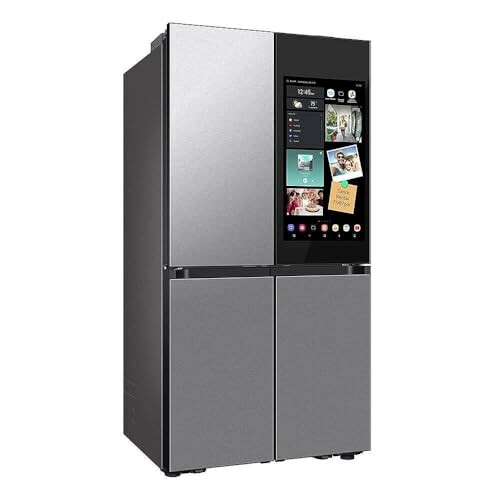
Smart Refrigerators: What's New in 2024
Key Takeaways
- Smart refrigerators are integrating advanced technologies for better food management.
- New features include voice control, touch screens, and energy-efficient designs.
- Some models now include built-in cameras for inventory management and recipe suggestions.
- Consider how these features can enhance your cooking efficiency and kitchen space.
As we step into 2024, smart refrigerators are revolutionizing the way we store and manage food. These high-tech appliances are packed with features designed to enhance kitchen efficiency and convenience. In this article, we will explore the latest advancements in smart refrigerators and how these innovations can elevate your cooking experience.
What makes a refrigerator "smart"?
Smart refrigerators are equipped with features that allow them to be connected to the internet and integrated with other devices. This connectivity provides a range of functionalities, such as:
- Remote monitoring: Check the contents of your fridge from your smartphone.
- Energy efficiency: Smart programming to save energy when not in use.
- Inventory management: Track items that need to be restocked based on usage.
- Voice control: Operate your fridge hands-free using virtual assistants.
Trending Features in 2024
| Feature | Description |
|---|---|
| Voice Activation | Control your fridge using voice commands for a hands-free experience. |
| Touchscreen Interfaces | Easy access to settings, recipes, and grocery lists right on your fridge. |
| Built-in Cameras | See inside your fridge without opening the doors, helping you manage inventory. |
| Smart Alerts | Receive notifications about expiring food or when it’s time to restock essentials. |
How smart refrigerators enhance kitchen efficiency
The integration of smart technology in refrigerators leads to several efficiency benefits:
- Streamlined meal planning with digital recipe suggestions.
- Reduced food waste through better inventory management.
- Enhanced food preservation with data-driven temperature controls.
Spotlight on New Products
SAMSUNG RF29DB9900QD 29 Cu. Ft. Stainless 4-Door French Door Smart Refrigerator
Experience cutting-edge features with this 29 Cu. Ft. smart refrigerator, boasting a sleek stainless finish and versatile storage solutions tailored for modern kitchens.
Learn MoreFinal thoughts on smart refrigerators in 2024
Smart refrigerators are evolving more than ever, offering innovative features that cater to today's tech-savvy homeowners. With advanced functionalities, they not only simplify food management but also enhance the overall cooking experience. Whether you're interested in energy efficiency or modern culinary technology, investing in a smart refrigerator could be a game changer for your kitchen.
Pros and Cons of Smart Refrigerators
Pros
- Enhanced convenience with remote access and control.
- Smart features that assist in meal planning.
- Energy-efficient options available.
- Helps reduce food waste.
Cons
- Higher initial investment compared to traditional refrigerators.
- Possible software updates required.
- Dependency on Wi-Fi and internet connectivity.
Explore more smart kitchen technologies
For those interested in integrating more smart technology into their kitchen, consider checking out these resources:
- Advanced Cooking Gadgets
- Integrated Kitchen Monitoring Systems
- Voice-Activated Appliances
- Touchless Faucets
- Bluetooth-Enabled Appliances
Key Takeaways
- Smart refrigerators offer enhanced convenience with a variety of cutting-edge features.
- They can drastically reduce food waste by helping you manage your food inventory.
- Investing in a smart refrigerator may lead to long-term savings on energy costs.
